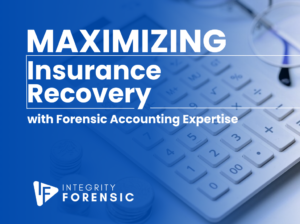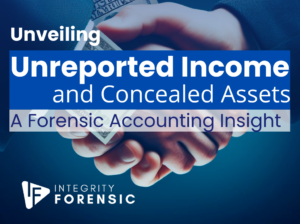When facing financial complexities or potential fraud, one of the most critical decisions you’ll make is selecting the right forensic accountant. These financial detectives play a pivotal role in unraveling intricate financial matters, and their expertise can be the difference between resolving a case successfully or facing prolonged challenges. But how do you determine whether a forensic accountant is qualified to work on your case? In this article, we’ll provide you with a comprehensive guide to make this decision with confidence.
1. Verify Their Credentials
Begin your assessment by scrutinizing the forensic accountant’s credentials. Ensure they possess the necessary educational background and certifications, such as Certified Forensic Accountant (Cr.FA) or Certified Fraud Examiner (CFE). These designations indicate that the accountant has met specific standards and is committed to maintaining their expertise through continuing education.
2. Assess Relevant Experience
Not all forensic accountants are created equal, and the complexity of financial cases can vary significantly. Look for an accountant with experience handling cases similar to yours. Whether it’s a divorce proceeding, a corporate fraud investigation, or a personal injury claim, a track record of success in your specific area can be invaluable.
3. Inquire About Industry Knowledge
Understanding the intricacies of the industry in which your case resides is crucial. If you’re dealing with healthcare fraud, for example, a forensic accountant well-versed in healthcare regulations and practices will be more effective. Ask about their experience within your industry and their ability to navigate its nuances.
4. Evaluate Technological Proficiency
In the digital age, financial matters often leave electronic footprints. A competent forensic accountant should be proficient in using data analysis software and technology tools to uncover hidden patterns and anomalies. Inquire about their technological capabilities and their commitment to staying current with advancements in forensic accounting technology.
5. Seek Referrals and References
A reputable forensic accountant should be able to provide references from previous clients or colleagues. Reach out to these references to gain insights into the accountant’s professionalism, communication skills, and ability to deliver results.
6. Assess Communication Skills
Effective communication is paramount in forensic accounting. The accountant must be able to convey complex financial findings in a clear and understandable manner, especially if their involvement includes providing expert testimony in legal proceedings. Gauge their ability to communicate effectively during your initial interactions.
7. Analyze Ethical Standards
Integrity and ethical conduct are non-negotiable in forensic accounting. Inquire about the accountant’s ethical standards and commitment to upholding the profession’s code of ethics. A forensic accountant with a strong moral compass is more likely to conduct investigations with the highest level of integrity.
8. Consider Availability
Timeliness is often critical in financial matters. Ensure that the forensic accountant you choose has the availability to handle your case promptly. Discuss timelines and expectations upfront to avoid potential delays.
9. Discuss Fees and Costs
Finally, discuss the accountant’s fees and costs. Transparency in financial matters should extend to the billing process. Understand their fee structure, whether it’s hourly rates, fixed fees, or a combination, and ensure it aligns with your budget and expectations.
In conclusion, choosing the right forensic accountant is a pivotal decision when faced with financial complexities or potential fraud. By following these steps, you can confidently assess an accountant’s qualifications and select the expert best suited to handle your specific case. Remember that the right forensic accountant can be your strongest ally in unraveling financial mysteries and achieving a favorable resolution.
At Integrity Forensic, we have a team of experienced forensic accountants to assist you. Call now for a free consultation: 855-673-9999 or send us a message at questions@integrityforensic.com.





